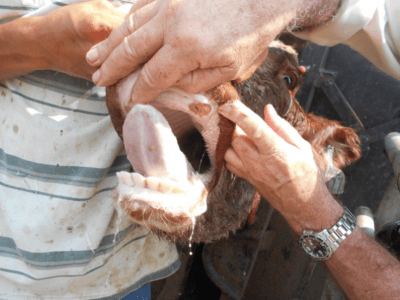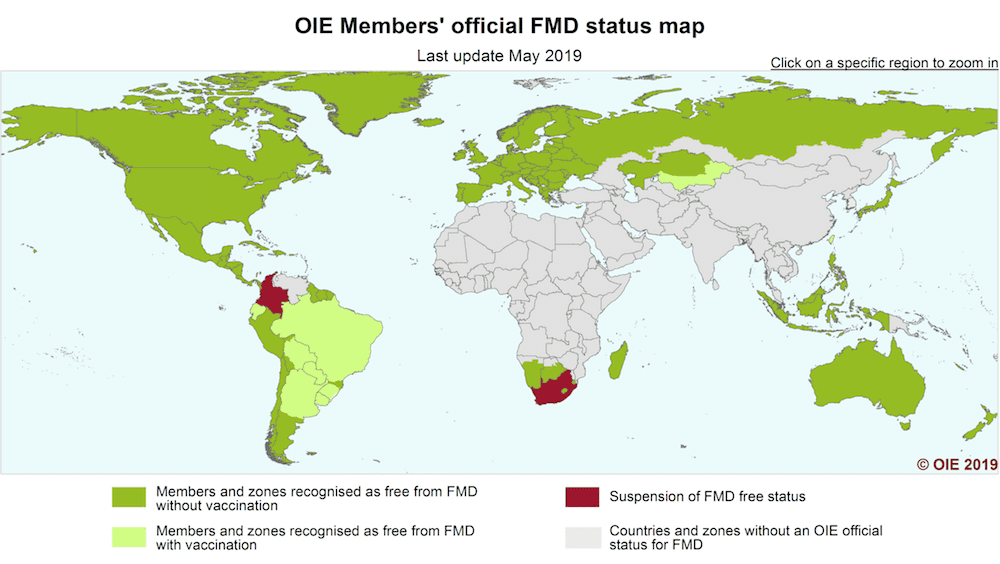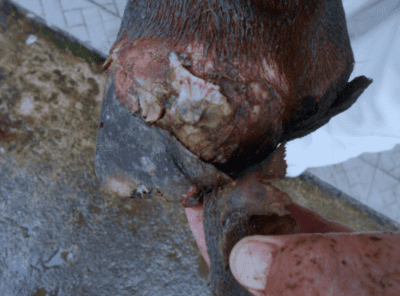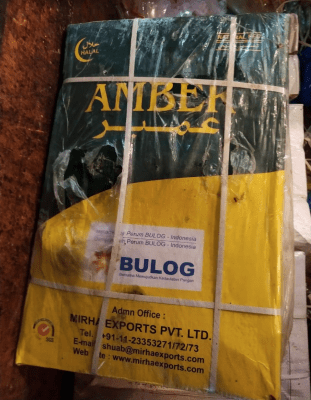The Indonesian government is the only legal importer of Indian buffalo beef and it has stopped all imports as of a short time ago with the result that domestic cold stores are now empty of product with no advice as to if or when new imports might recommence.
It was not long ago that the government advised that the target for total Indian buffalo imports for 2019 was in the order of 100,000 tonnes.
I am not aware of any official public announcements regarding this situation with all my information coming from industry sources over the last few days.
Meat wholesalers became aware of a shortage of frozen buffalo when they began to get large numbers of calls from traders who were unable to obtain supplies from their usual sources.
The only suggestion to date to explain this apparent change in policy is that there has recently been some Indian based media exposure of a number of Foot and Mouth Disease (FMD) outbreaks in India.
What I can confirm is that as of May 2019, the OIE* (the United Nations Animal Disease agency) has formally endorsed a new official control program for FMD in India according to the provisions of their terrestrial codes. (*Editor’s note: See reader comments below).
At the present time India has no official OIE status in respect of FMD which is generally understood to be endemic (continuously infected) in many parts of the country. See the latest OIE map below. India has had a number of FMD control programs over the years but their results have been disappointing.

The screenshot above is from the current official OIE web site showing the member countries
which have recently had their official FMD control programs endorsed by the OIE.
This sudden closure of imports representing 10’s of thousands of tons annually of box beef product will surely result in a major disruption to the fresh and frozen meat markets across Indonesia.
Some traders have told me that additional frozen product has already been requested from Australia and elsewhere with a sudden surge in demand likely to put serious pressure on imported prices.
Live cattle importers will also be impacted as demand for local fresh beef is likely to rise sharply as the traditional users of Indian buffalo scramble to find alternative sources of beef. Rising feeder cattle prices and a severe shortage of available numbers across northern Australia will make a quick response by importers a difficult and expensive proposition. The biggest losers will be the low price food service sector which has built its business model around a consistent supply of low priced Indian buffalo since 2016.
FMD is a probably the world’s most feared disease of cattle (and other cloven hoofed animals) with the capacity to devastate the national herd of any country which is free of the virus and where stock are totally unprotected by vaccines.
But this risk was well known when Indian buffalo imports commenced a few years ago so perhaps there is an alternative explanation for the sudden cessation of imports.

I have seen a FMD outbreak in person recently (not in Indonesia) and despite the fact tht it appears to have relatively minor lesions in the mouth and on the feet, the impact on cattle is devastating.



